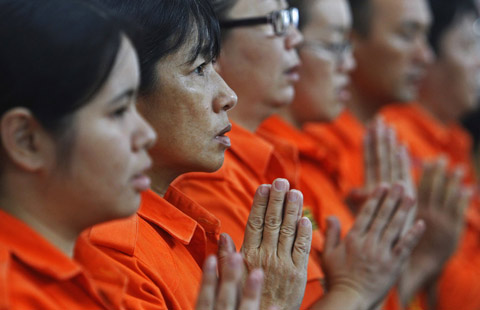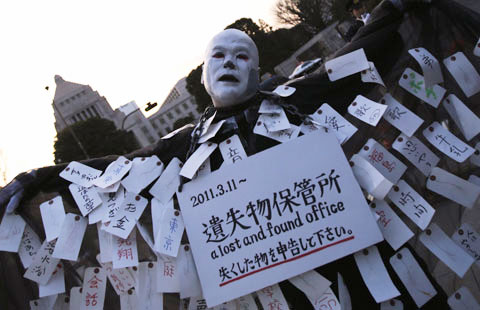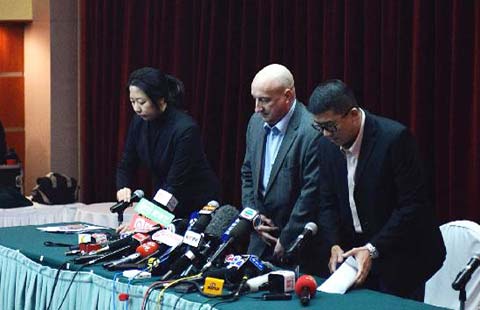Use of death penalty set to be reduced
Updated: 2014-03-10 01:02
By CAO YIN (China Daily)
|
||||||||
The top legislature will try to reduce the number of crimes subject to the death penalty by revising the Criminal Law this year, an official said on Sunday.
The last time China reduced the number of charges carrying the death penalty was in 2011, when the legislature cut 13 charges that did not involve violence.
Though the death penalty is still being used, courts are required to apply it strictly and carefully, Zang Tiewei, deputy director of the criminal department of the Legislative Affairs Commission under the National People's Congress Standing Committee, said during a news conference at the two sessions.
He also said the punishment should be applied only for extremely serious crimes, adding that the revision of the law has been put on the legislative agenda.
Deng Hui, an NPC deputy, suggested abolishing the death penalty for economic crimes.
"Economic crimes are different from violent ones. Violence poses more danger to people's lives, but most economic offenses are violations against property," said Deng, who is also a law specialist at Jiangxi University of Finance and Economics.
"So we should give the two kinds of crimes different punishments." Deng said.
The death penalty for economic offenders, including those who disturb market order and commit fraud in raising funds, is too heavy and unnecessary, he said.
Wu Zongxian, a criminal law professor at Beijing Normal University, said the death penalty cannot reduce crime and its deterrence has become weak.
"The best punishment for economic criminals, such as swindlers, is to take away their qualifications to do business," Wu said.
In addition, sentencing economic offenders to death may also affect China's image, since such a penalty was eliminated long ago in most developed countries, he added.
Under the current law, 55 crimes are subject to the death penalty, among which one-third are economic crimes such as corruption and bribery, according to Han Yusheng, a criminal law professor at Renmin University of China.
But Han said the plan to cut the number of charges carrying the death penalty should be handled carefully "because it does not mean abolishing capital punishment".
"It's not practical to eliminate the death penalty in our country, while the aim of lawmakers is to ask courts to reduce the application of the death penalty," Han said.
Currently, all death penalties have to be reviewed by the Supreme People's Court.
Zang said after the news conference that anti-terrorism legislation is going to be developed after soliciting public opinions.
The legislature increased punishments for those who organize terror attacks in an amendment to the Criminal Law in 2011, Zang said.
Most Viewed
Editor's Picks

|

|

|

|

|

|
Today's Top News
FBI check thumbprints of impostors on missing jet
Obama to meet Ukrainian PM on Wed
Families of jet passengers arrive in Malaysia
Japan urged to handle historical issues
Questions abound as the mystery deepens
IBM fires 19 in labor dispute
Search widens for lost air carrier Boeing 777
Carrying out goals of report vital
US Weekly

|

|














